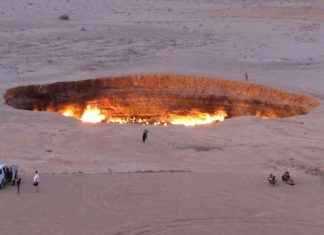Children without hope, without the possibility of the future are often intubated, undergoing treatment painful and unnecessary, that will not lead to salvation but to multiply the days of suffering. Small subjected to aggressive medical treatment “only to accede to the requests of the parents”, desperate at the thought of losing the son, unable to accept a hypothesis which is so unthinkable, unnatural, or because doctors fear of being one day accused by their relatives, suspected of not having done the maximum possible to save that baby.
In defense of children, who do not have words for to decide or to tell of their suffering, says the national Committee of Bioethics with an opinion as soon as approved. Complex pages that speak of the pain of children without a future, of parents desperate, of doctors engaged in the fight against evil. Balancing difficult and searched to find an alliance, an agreement, a mutual aid in the interest of the children, who cannot choose or defend themselves from the pain or from the fury decided by the great for love or for fear.
An opinion is important because to talk about end-of-life of infants or children divides opinion, as we have seen in the past few months about the case of Charlie Gard, the child’s English affected by a rare genetic disease, and kept alive artificially since birth. Or Alfie Evans, child of 23 months in care in Liverpool for a very serious brain disease, whose parents were opposed to the detachment of the machines, authorised by the judges, asking in vain to transfer it to the Child Jesus in Rome.
“In respect of small children with limited life expectancies should be avoided, “the fury” and “clinical pathways ineffective and disproportionate”, such as to cause “more suffering and a precarious and burdensome prolongation of life without further benefits,” writes the professor Lorenzo d’avack , president of the National Committee for Bioethics (Cnb) in the opinion as soon as approved after lengthy hearings of specialists, pediatricians, neonatologists, who have told, testified to their experience in the ward, in the departments of resuscitation. The text of the opinion So “with regard to small children needs to be recognized that, in practice, the rage clinical is often practiced because almost instinctively, at the request of the parents, it is taken to do everything possible to preserve their life, without considering the negative effects that this can have on the existence of the child in terms of results and further suffering. At other times, however, the aggressive clinical is practiced in a conscious way, as a defence to possible allegations of wrongful death or discontinuation of active treatment, or treatment support. So these clinical practices are given primarily not to ensure the health and well-being of the patient, but as a form of protection and guarantee of their responsibilities medical-legal related to the activities carried out,” writes The Committee.
in View of the situation, the Committee recommends that “the best interests of the child are the inspiration in the situation and must be defined from the clinical condition, together with the consideration of pain and suffering and respect his or her dignity, to the exclusion of all evaluation in terms of economic costs. You must ensure that the doctors you enter in the clinical pathways to be ineffective and disproportionate, only to accede to the requests of the parents and/or to meet the criteria of defensive medicine”.
then seeks to establish through a national law and make operational the ethics committees for clinical in pediatric hospitals with a consultative role and training, so as to promote the evaluation of the complexity of these decisions and seek the mediation of disputes that arise between doctors and parents may request a second medical opinion. Such ethics committees should be interdisciplinary, composed of pediatricians, specialists of the areas medical the object of analysis, the nurses, and the figures do not health care which carried and biogiuristi.
In extreme cases, the Committee seeks to provide recourse to the courts if the disagreement between doctors and family members is irreparable, but also asks to create a core of professionals able to support the parents on an emotional level and the practical (social workers, psychologists, experts in bioethics, associations of families, voluntary associations), and to accompany them in the difficult path, given the conditions of the child’s illness
Always thinking about the good of children, the Cnb asks you to provide care pallliative, hospital hospital and at home, in a homogeneous way throughout the country, “we are still very deficient in many regions there are in spite of the law of 2010 and is a pretty good read” stresses professor D’avack.
the recommendations of The Committee and so they asked to increase research on pain and suffering in children, and to avoid that the small, more so with poor prognosis in the short term, is considered a mere object of experimentation and research on the part of doctors. “Too strong the risk in front of desperate cases you rivolegersi anyone, to sorcerers, while you have a shred of hope that science denies,” remembering always that in any case, “the prohibition of obstinacy and unreasonable treatment” should not lead to “abandonment of the child” who has a right to palliative care in a homogeneous way on the territory”.
“The Republic will fight always in defense of the freedom of information, to its readers and to all those who have at heart the principles of democracy and civil coexistence”
Carlo Verdelli SUBSCRIBERS TO REPUBLIC © Reproduction reserved reader COMMENTS Today on who’s talking Rock? The last message of the boss of the slaughter Line is saturated, the holes in the maintenance. And the High speed for the first time it faints, High-speed, a binary fragile the Prescription, in Italy the Viva breaks down. The agreement only between the Pd 5S and Leu Prescription, now Renzi is a threat to the external support. Count: vote against
the Republic






